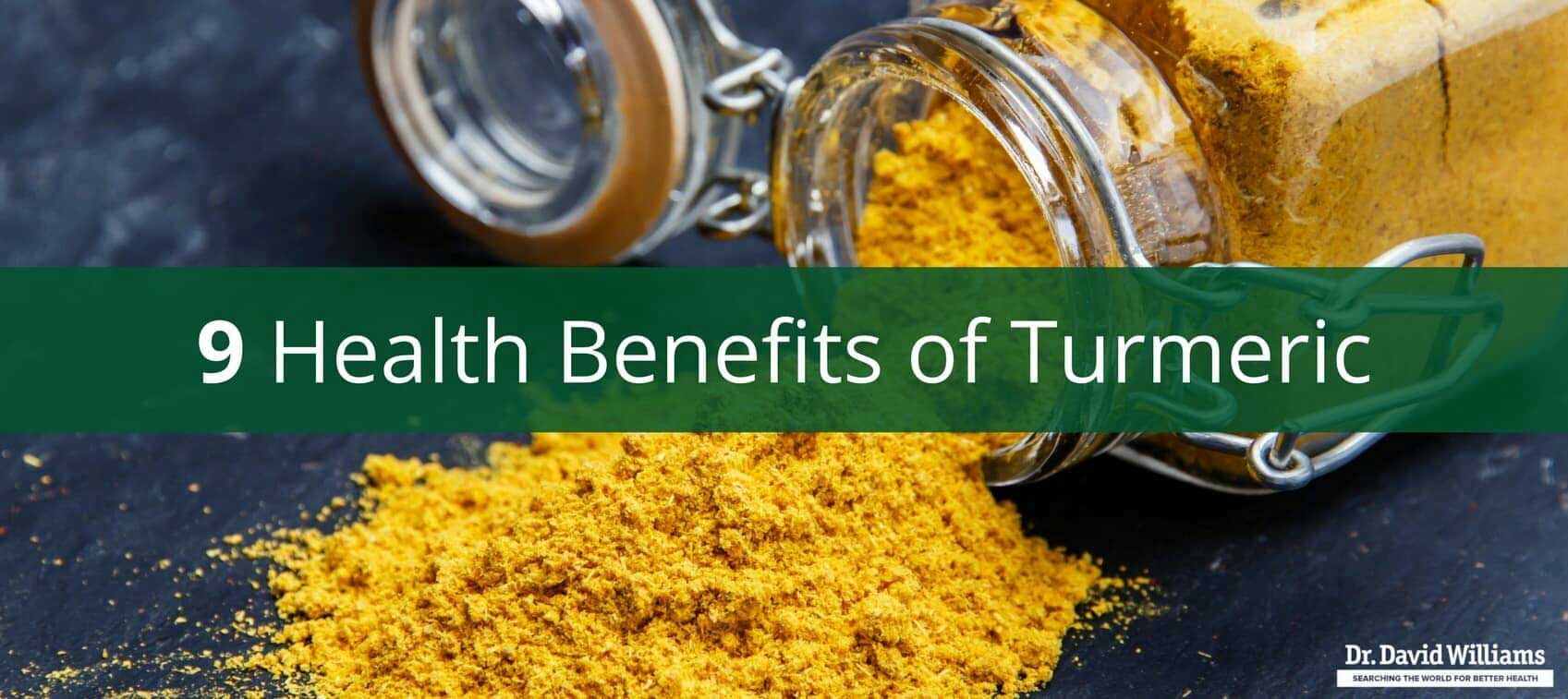
Some of the most powerful and safest therapies are found in nature. One that tops that list is Turmeric, which grows wild in the forests of South and Southeast Asia. I’ve been writing about it for years and I’m glad to see that turmeric health benefits are getting the attention they truly deserve.
Historically, turmeric has played a key role in Indian Auyrvedic medicine and has been used extensively in various Indian ceremonies for centuries.
What Exactly Is Turmeric?
Turmeric (Curcuma longa) is the bright yellow that’s used in many Indian, Pakistani, Persian, and Thai dishes. Its active ingredient is a compound called curcumin.
Curcumin plays two key roles in the body. First, it’s an antioxidant protecting cells from the normal, but damaging, free radicals which can cause cellular damage to your body. Plus, curcumin acts like a powerful anti-inflammatory, easing everything from joint pain to asthma.
Turmeric’s health benefits are immense. With its anti-inflammatory, antitumor, antibacterial, antiviral, and antioxidant properties, I’d probably have an easier time listing what turmeric can’t do. But here are a few of turmeric’s most powerful benefits.
Reducing Joint Inflammation
The anti-inflammatory properties of turmeric make it a powerful supplement for easing symptoms of joint discomfort and stiffness. Preliminary cell studies suggest that the curcuminoids in turmeric work to promote a normal inflammatory response by inhibiting the expression of the COX-2 "pain" enzyme.
The major challenge with turmeric is that curcumin is difficult for the body to absorb. Fortunately, scientists have found that they can attach curcumin to sunflower-derived phosphatidylcholine, which is very well absorbed by the body. It acts as a “shuttle,” moving the curcumin through cell membranes and into the bloodstream and tissues where it provides pain relief. It has also been said that an extract of common black pepper called piperine increases the absorption and bioavailability of curcumin.
How to use it: Taken orally, turmeric can help reduce joint discomfort throughout the body. I recommend starting with 2-3 capsules a day. Applied topically, it can be used to treat specific joints. To make the topical paste, mix two tablespoons of turmeric powder and one tablespoon of lime juice. To this mixture, add a small amount of boiling water to help form a uniform thick paste.
Treating Sprains and Strains
One obvious turmeric health benefit is pain relief because it has because of its anti-inflammatory properties. A topical turmeric paste has been used since ancient times as a natural treatment for strains and sprains. The anti-inflammatory effects of turmeric can also decrease swelling caused by these injuries.
How to use it: Apply topical turmeric paste to the painful area and hold it in place with either cheesecloth or plastic food wrap. See how to make the paste under turmeric health benefit #1.
Relieving Muscle Aches
You can relieve muscle aches by using turmeric for its anti-inflammatory effects the same way you would use it for sprains and strains. Minor muscle damage or inflammation can be eased naturally with turmeric, rather than nonsteroidal anti-inflammatory drugs (NSAIDs) for the pain.
How to use it: Make a topical turmeric paste and apply it to the affected area. Hold it in place with either cheesecloth or plastic food wrap. See how to make the paste under turmeric health benefit #1.
First Aid and Wound Care
Even bleeding from less-serious cuts, nosebleeds, and abrasions can be difficult to stop at times. Compression wraps, ice, and elevating a wound can help, but not always. One turmeric use can be the ceasing of bleeding cuts. I once got a letter from a chef who told me that he loved to cook with turmeric, and had discovered its remarkable ability to stop bleeding. Please keep in mind that you should still seek medical help if the wound is a serious health risk.
How to use it: Applying turmeric powder directly on cuts causes blood to clot almost instantly.
Treating Psoriasis
One of the health benefits of turmeric’s antioxidant and anti-inflammatory properties is its ability to help treat psoriasis. Multiple studies over the years have revealed that curcumin regulates the production of all the compounds involved in psoriasis, rather than just shutting them down. This leaves your body in condition to call on them when they’re needed—to fight an infection, for example.
How to use it: Apply topical turmeric paste on psoriasis lesions. See how to make the paste under turmeric health benefit #1.
Stopping Asthma
Another health benefit of turmeric is its defense against asthmatic symptoms. Turmeric helps dilate blood vessels allowing for better air flow, relaxes muscle spasms, restores normal breathing patterns, thins the blood, and relieves asthmatic inflammation that causes swelling in the lungs that hinders breathing.
The allergic response in asthma is prompted when T-lymphocytes from your immune system release specific compounds that cause inflammation. Researchers have found that turmeric can prevent the release of these compounds with its anti-inflammatory properties.
How to use it: If you decide to try the bulk powder form, start with 1/4 teaspoon taken four times daily. This dosage may need to be doubled if you don’t see any improvement within 10 to 14 days.
Supporting Gallbladder Health
Turmeric can benefit the health of your gallbladder too. Regular consumption of a curcumin supplement can increase the solubility of your bile, increasing its flow and possibly preventing painful gallstones from forming.
How to use it: Consume 2-3 capsules of a curcumin supplement per day.
Preventing Signs of Aging
There are numerous theories on exactly what causes aging, and one of the most popular has to do with telomere length. Telomeres are protective little caps at the end of double-stranded molecules of DNA called chromosomes. Every time a cell divides, the telomeres get shorter. At the point they get too short, the cell can no longer divide, and it becomes inactive and dies. Telomere shortening is a sign of aging and has also been associated with a number of health risks.
Research has also shown that curcumin in turmeric can help prevent telomere shortening and can lead to longer telomeres in normal cells, creating an anti-aging effect.
How to use it: Consume 2-3 capsules of a curcumin supplement per day.
Supporting Heart Health
The last turmeric benefit has to do with its ability to help reduce inflammation throughout the body, which is important for the health of your heart as well as your overall health. When curcumin exerts its effects by providing antioxidant protection against free radicals throughout your body, it also affects your circulatory system. It has been shown to help maintain good total cholesterol levels and decreases platelet activity, or the stickiness of the blood cells, that causes clotting issues.
If you have a history of cardiovascular disease or exhibit high-risk factors for heart disease, turmeric is one of the more effective, low-cost remedies for preventing potential problems. At a cost of only a couple of pennies a day, I guess you could call turmeric the poor man’s answer to keeping your heart healthy
How to use it: Consume 2-3 capsules of a curcumin supplement per day.


